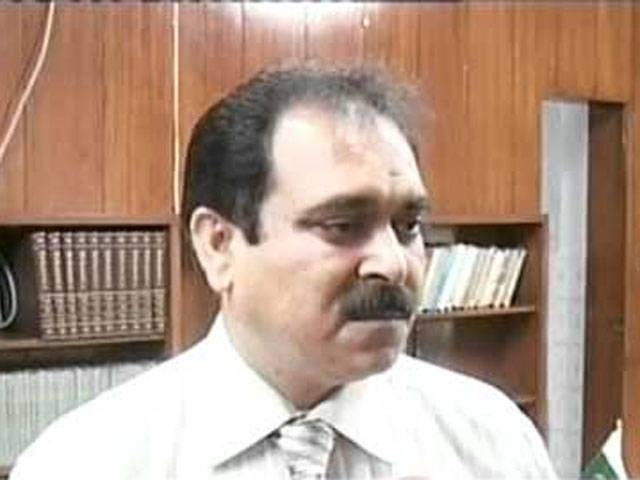ISLAMABAD - The possibility that the police surgeon's murder in Quetta could be a sectarian killing does not stay out of sight as security officials probe into several aspects regarding the assassination including those of sectarian motives, personal feud or score settling by "hidden hands."
Fingers were pointed at security forces after the unidentified gunmen in Quetta killed Dr Syed Baqir Ali Shah on Thursday last. In a daring move, Dr Shah, a police surgeon, had testified against the powerful Frontier Corps and Quetta police officials to suggest their involvement in the killings of five foreigners in Kharotabad, Balochistan, on May 17 this year. Dr Shah had publicly contradicted the FC and local police's assertion that the foreigner suspects who were reported to have entered Pakistan via Iran, were "armed and dangerous." Shah's life came under threats following a bad beating he received just days after he testified against the security forces in the notorious Kharotabad killings episode. He had publicly mentioned of those threats and demanded security for life protection that was never reportedly provided by the Quetta police. When approached, the FC spokesman Murtaza Baig denied the reports suggesting FC's involvement in Dr Baqir Shah's killing, terming them baseless. "FC has nothing to do with it. It was the job of police and not the FC to provide him security. The FC has no connection in this regard whatsoever," he told The Nation on Friday.
The Capital City Police Officer (CCPO) in Quetta Ahsan Mehboob, on contact, said that it was being investigated why security was not provided to Dr Shah. Regarding the sectarian motives behind the killing, Mehboob said, every aspect was being looked into. "The sectarian element may be there but I cannot share details at the moment. Investigation is at an early stage." Asked if any action against the officials concerned responsible for the provisions of security to Dr Baqir Shah was initiated, the CCPO said that he was busy investigating Friday's bomb blast in Quetta and refused to speak on the issue any further. "You know I'm already occupied with today's blast here. We could talk about this issue some other time."
Officials in a security agency say, the initial investigation into the killing of Dr Shah has provided trails to some pertinent clues concerning the circumstances that have been lately impacting the security scenario in Quetta.
According to the officials, Dr Syed Baqir Ali Shah was a Shi'ite Muslim and the chances could not be ruled out that he fell victim to the sectarian violence initiated by banned militant outfit Lahkar-e-Jhangvi in Quetta. During recent months, dozens of innocent Shias, mostly from Hazara community, were gunned down reportedly by Lashkar-e-Jhangvi. Following this adverse situation, the members of Shia community are seeking asylum in Indonesia, Malaysia, Singapore, Canada, Australia, US and UK. The information regarding Baqir Shah's affiliation with the Shia faith, however, could not be verified.
Having hailed from Dera Murad Jamali, a relatively remote district of Balochistan, Dr Shah did not come from Hazara community. But his affiliation with Shia faith, sources believe, could make him an easy prey to sectarian killing.
It is also learnt, Dr Shah had cited three major reasons before a court for claiming protection. These reasons included the life threats he perceived from security agencies after Kharotabad incident, a family feud in Dera Murad Jamali his clan members were involved in and the target killings of Shias in Quetta.
Lately, security forces had launched crackdowns against banned militant organisations following killings of Hazara community men in Quetta. The possibility whether Lashakr-e-Jhangvi or any banned sectarian outfit has staged the killing to put blame on security forces is also being looked into, reportedly.
"Responsibility for Shah's killing has to be fixed. If one is to go by Dr Shah's statement, there's definitely some 'hidden hand' involved and why Baqir was not provided security is another relevant factor. But its equally important to consider that some militant organisation could do this to avenge those crackdowns that got their men killed," TheNation was told.
Friday, April 19, 2024
FC denies involvement in Dr Baqir's killing

Pak economy improving, funds will be provided on request: IMF
9:57 PM | April 19, 2024
Minister advocates for IT growth with public-private collaboration
9:57 PM | April 19, 2024
Judges' letter: IHC seeks suggestions from all judges
9:55 PM | April 19, 2024
Formula 1 returns to China for Round 5
9:05 PM | April 19, 2024
Germany head coach Julian Nagelsmann extends contract till 2026 World Cup
9:00 PM | April 19, 2024
A Tense Neighbourhood
April 19, 2024
Dubai Underwater
April 19, 2024
X Debate Continues
April 19, 2024
Hepatitis Challenge
April 18, 2024
IMF Predictions
April 18, 2024
Kite tragedy
April 19, 2024
Discipline dilemma
April 19, 2024
Urgent plea
April 19, 2024
Justice denied
April 18, 2024
AI dilemmas unveiled
April 18, 2024
ePaper - Nawaiwaqt
Advertisement
Nawaiwaqt Group | Copyright © 2024





